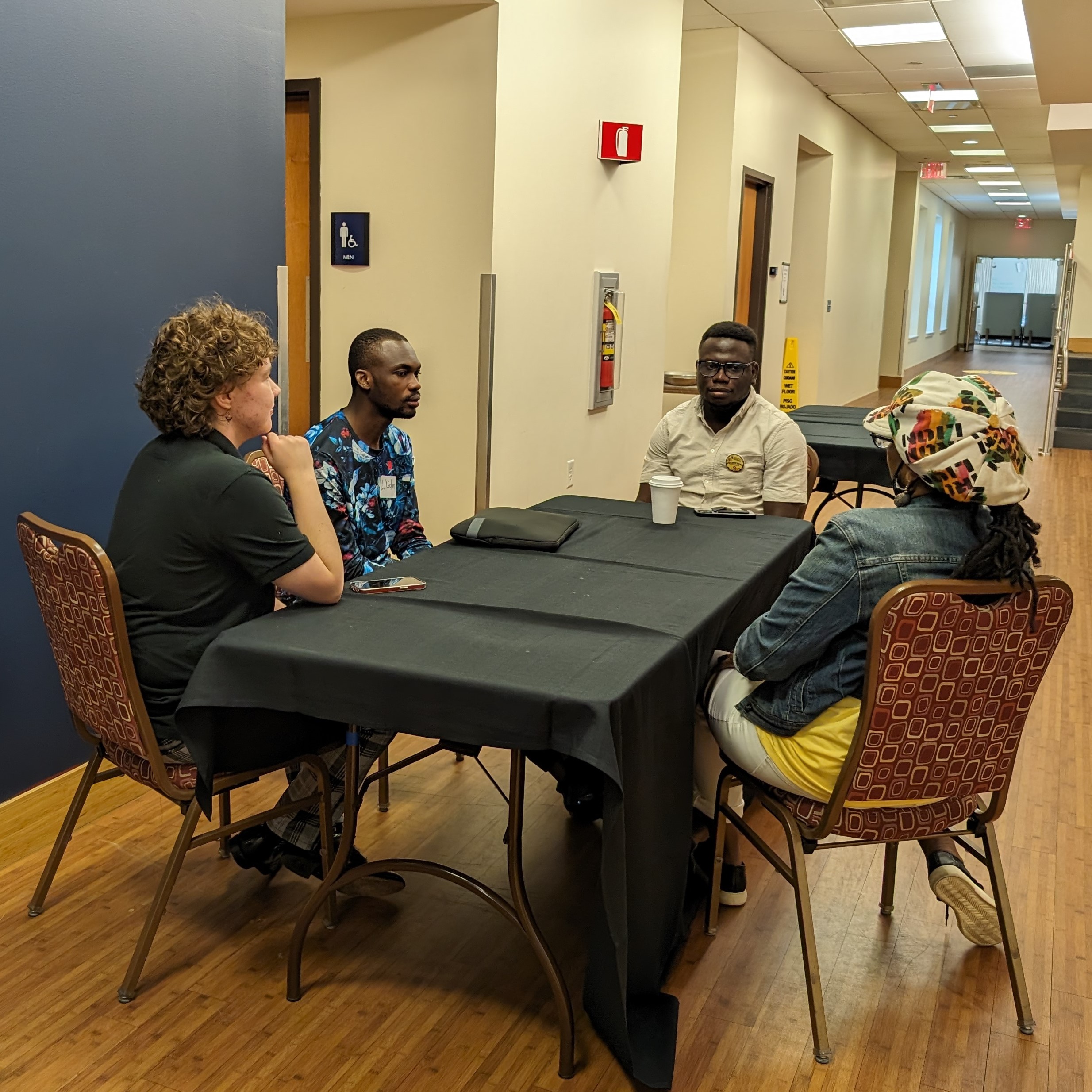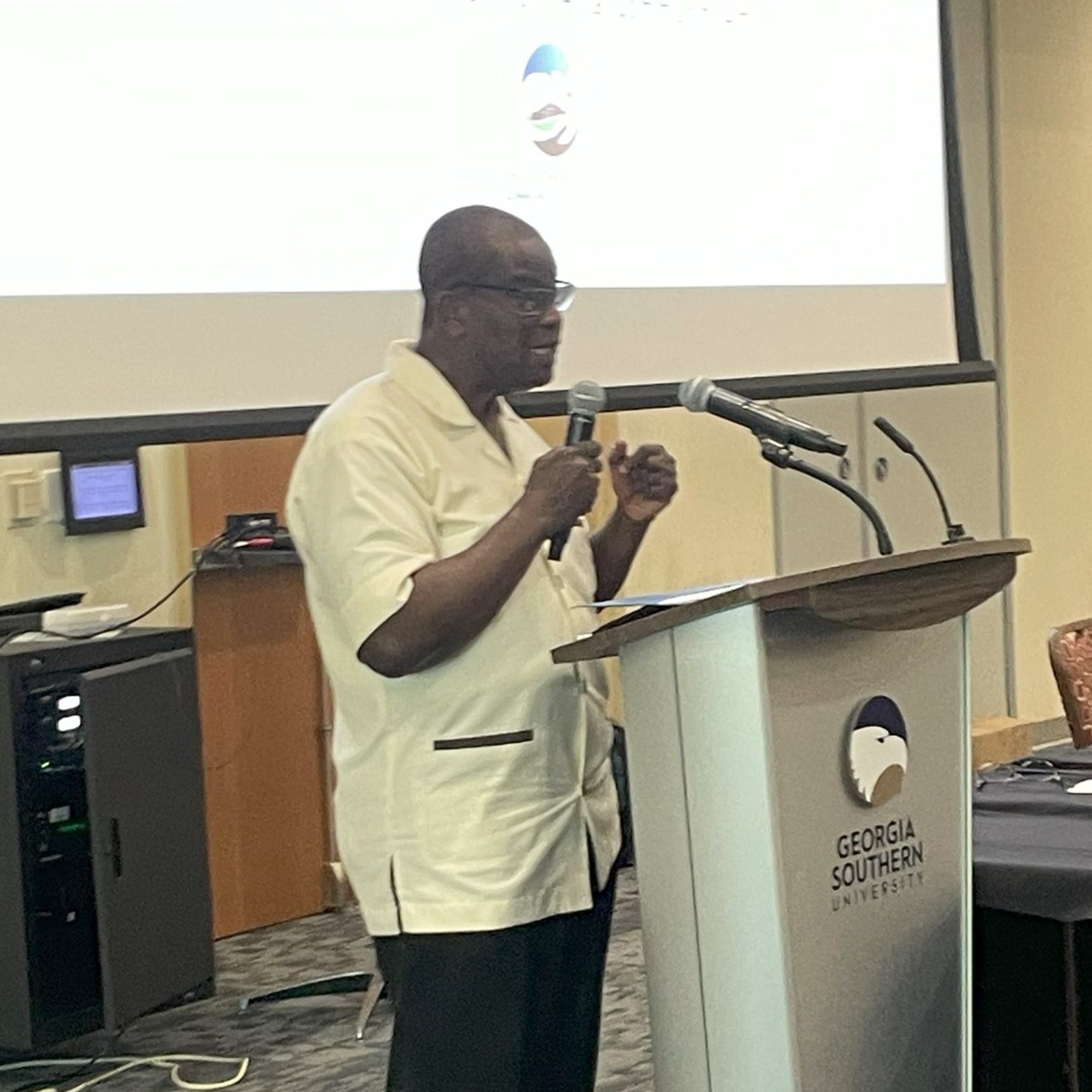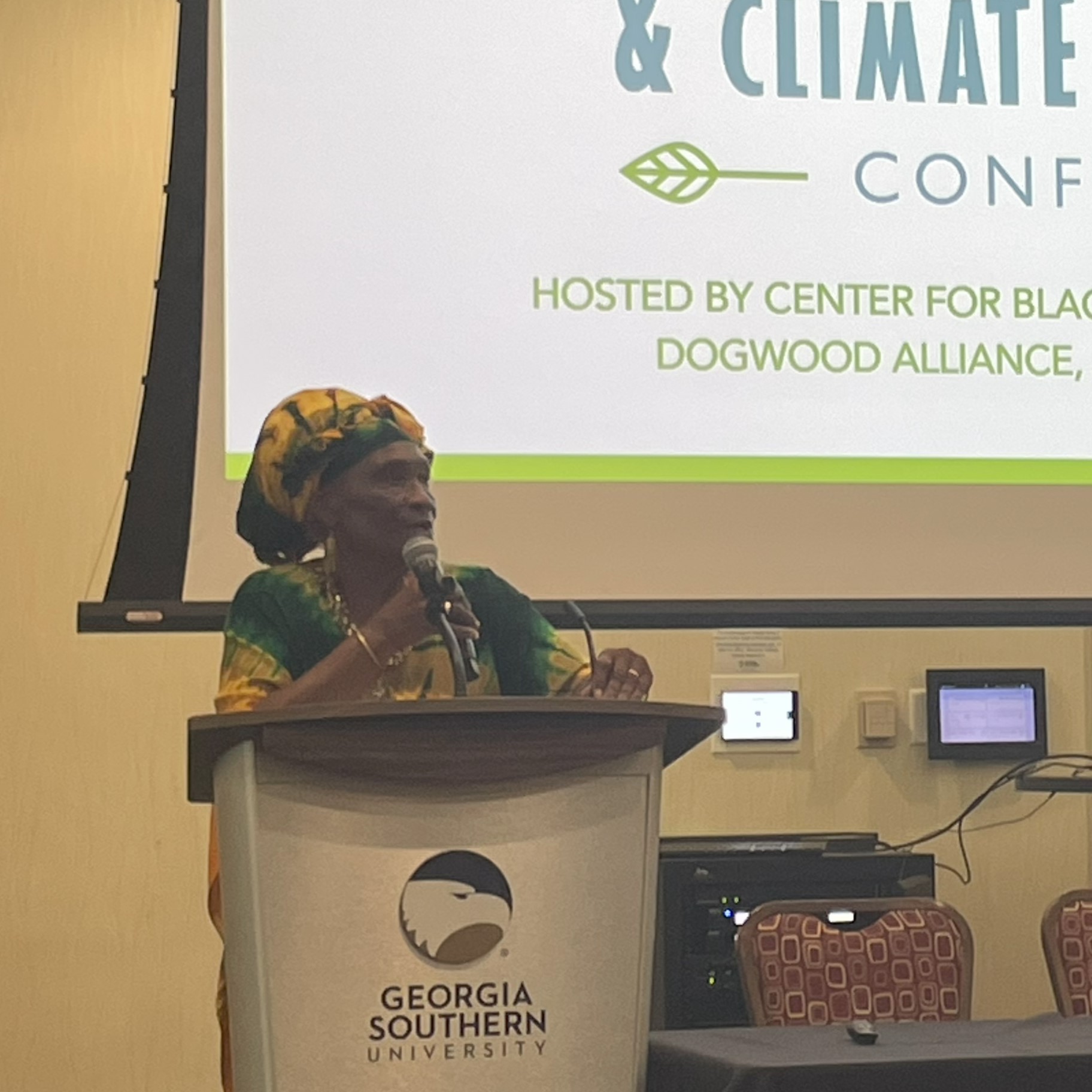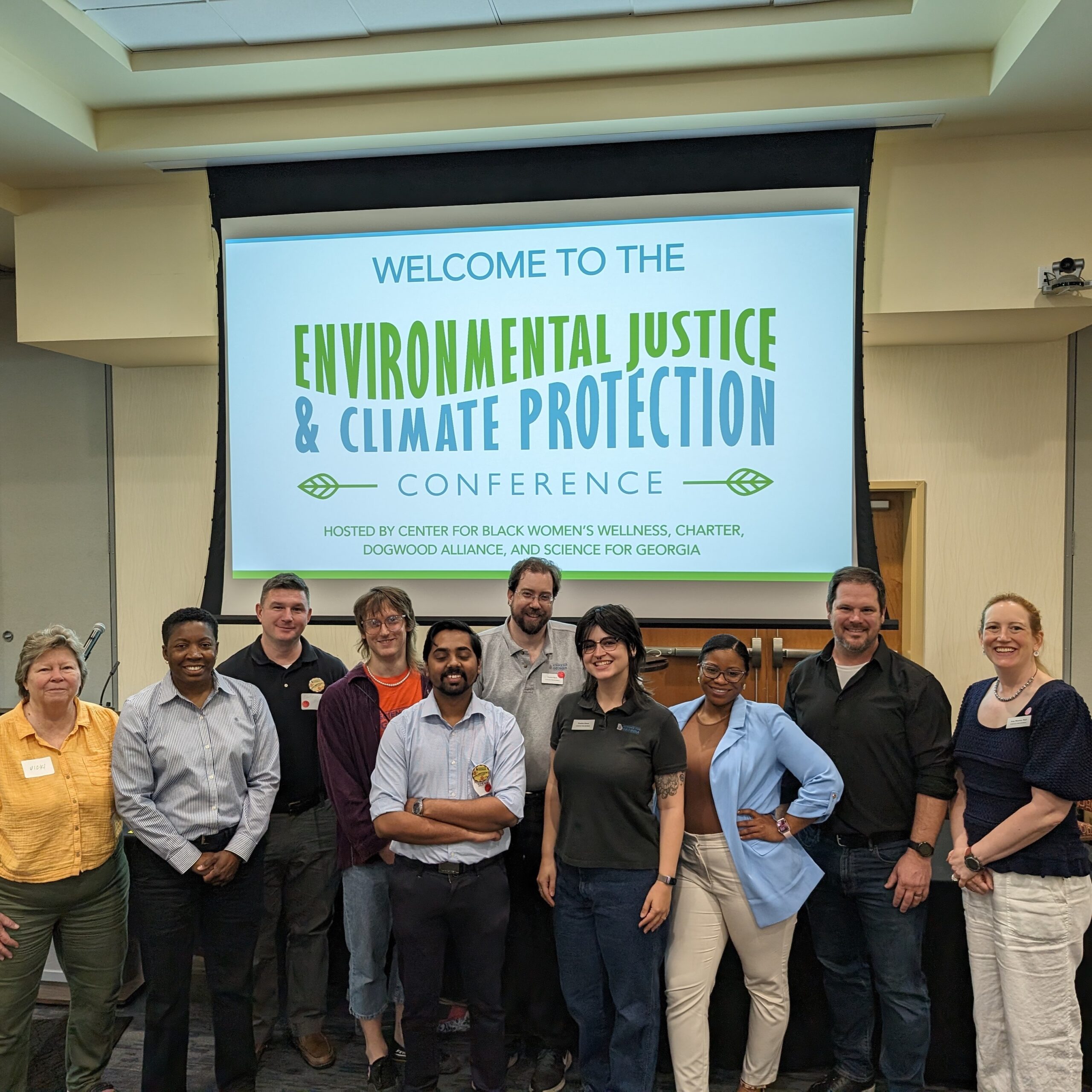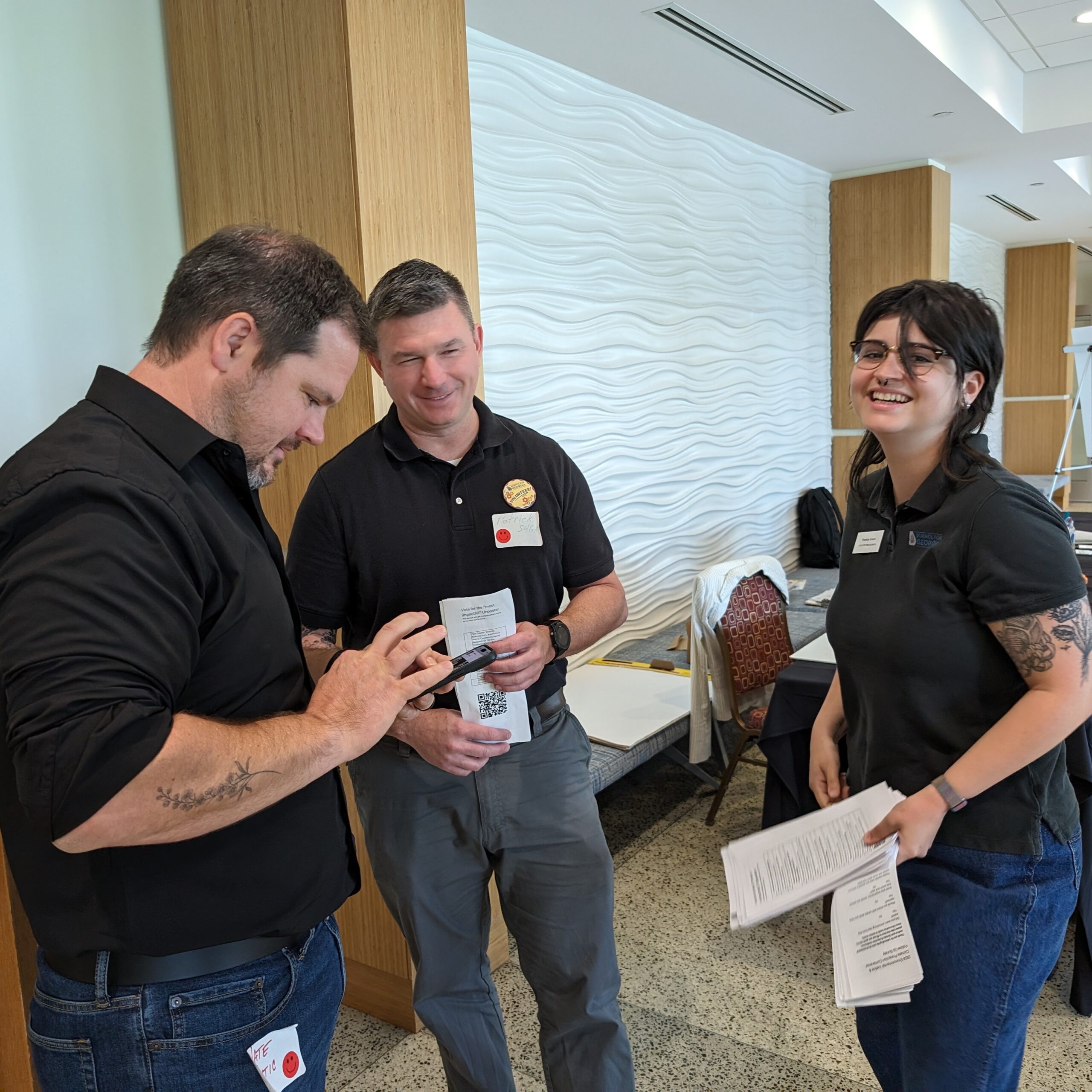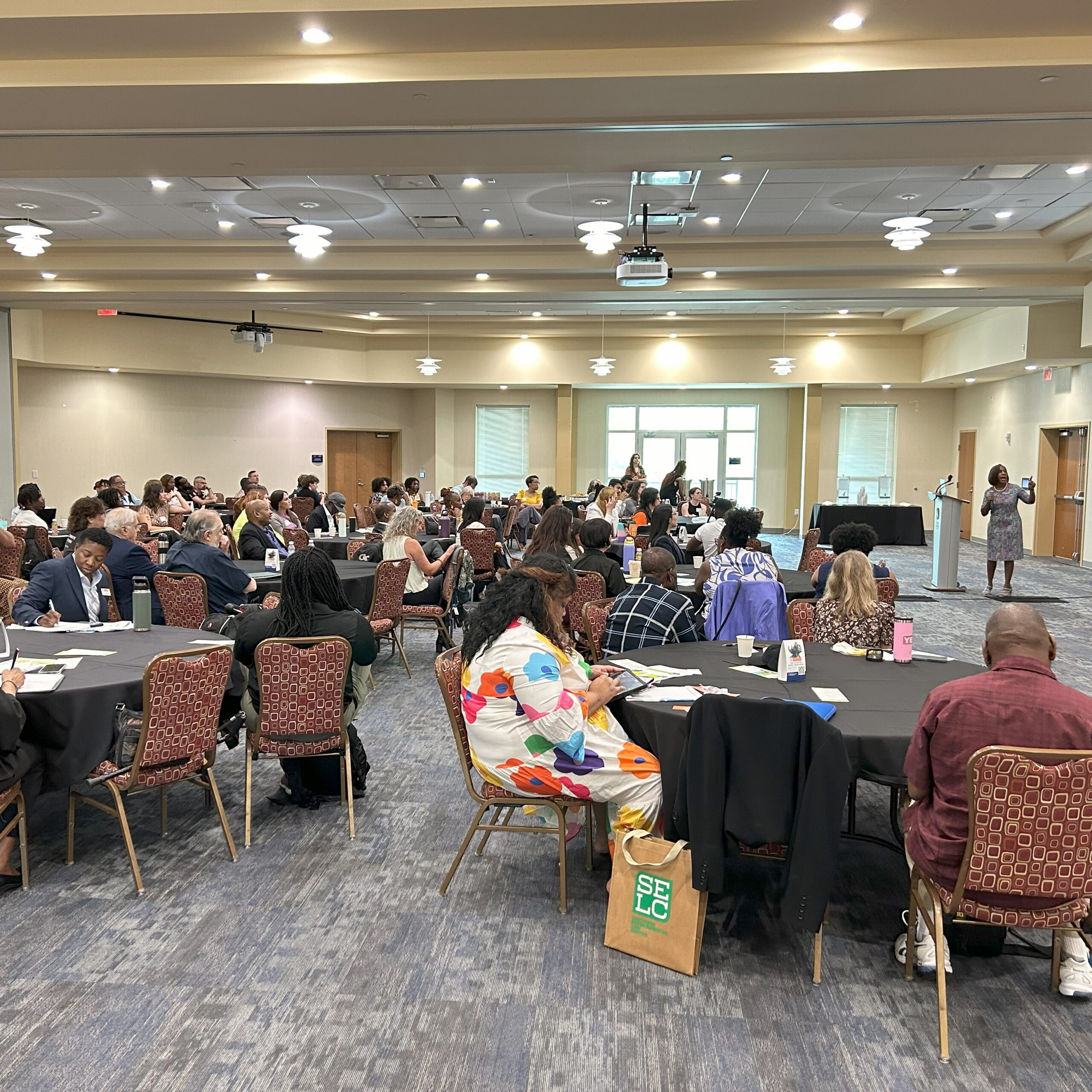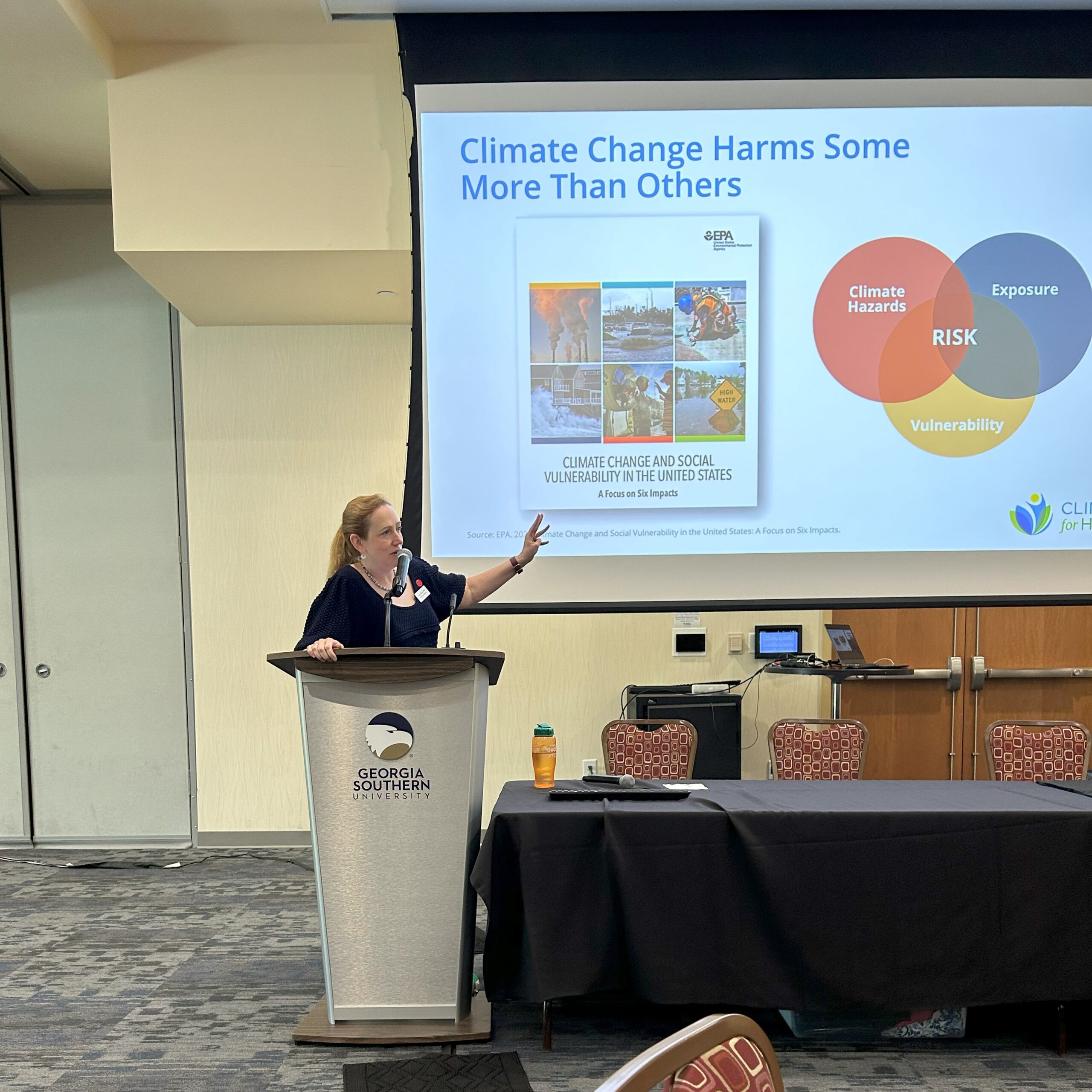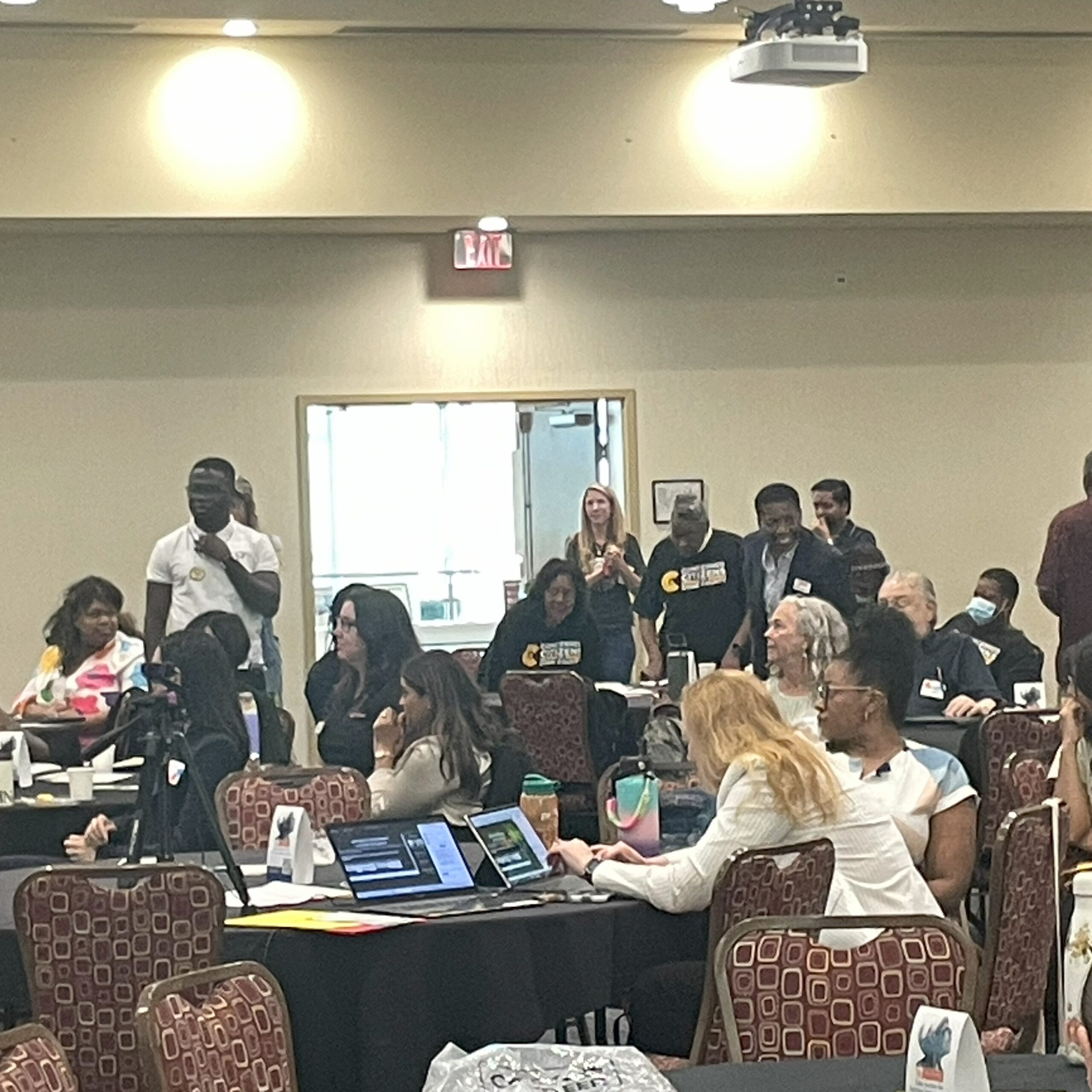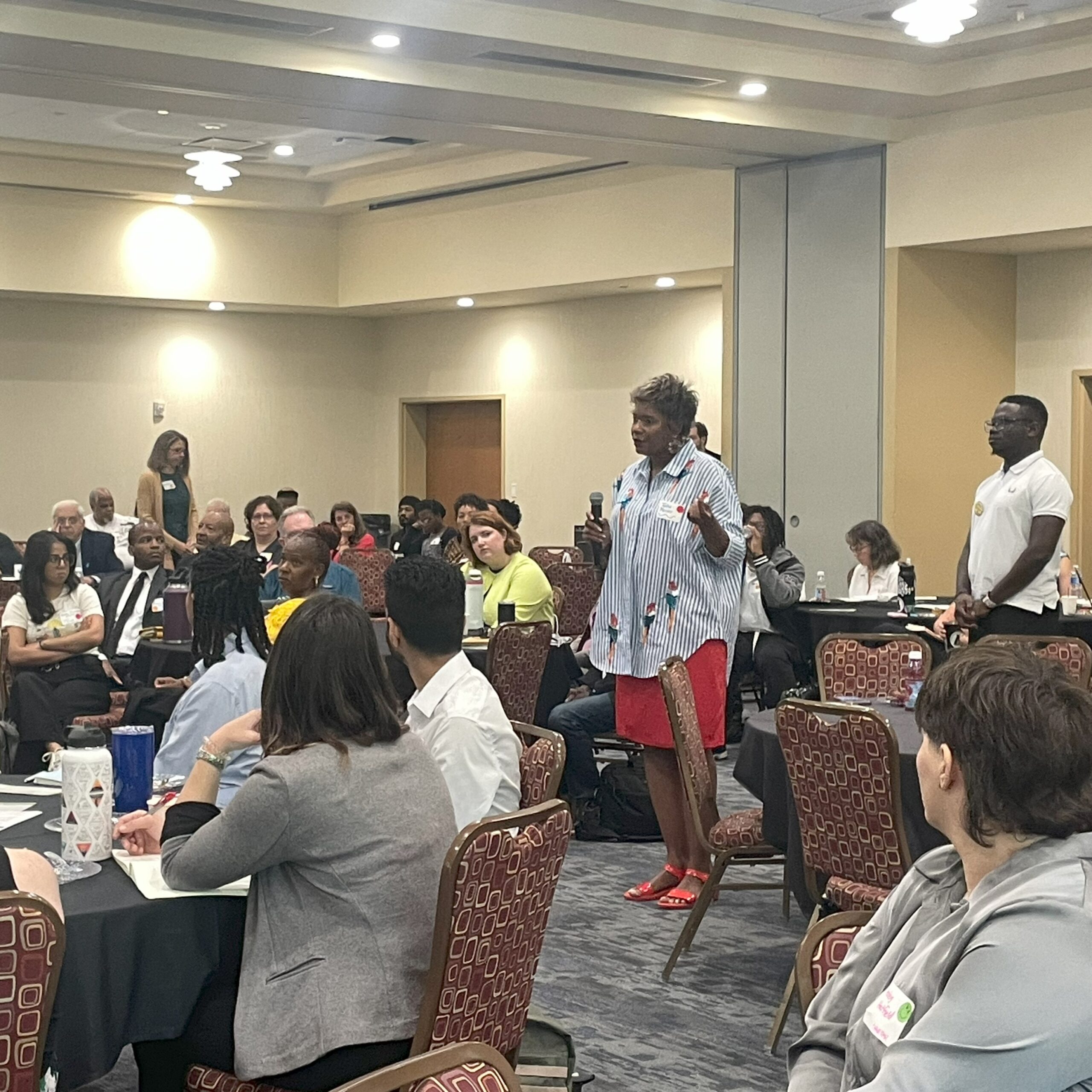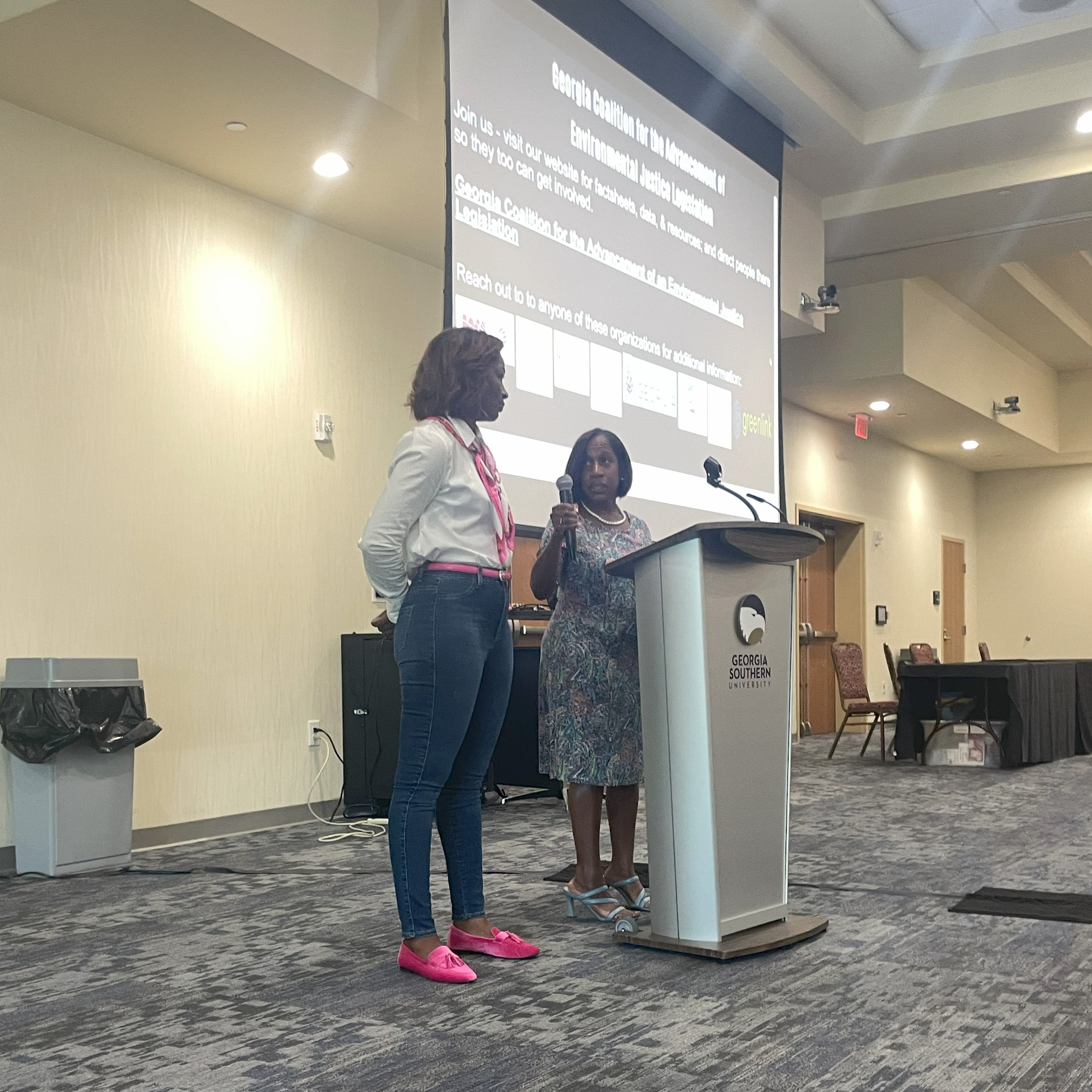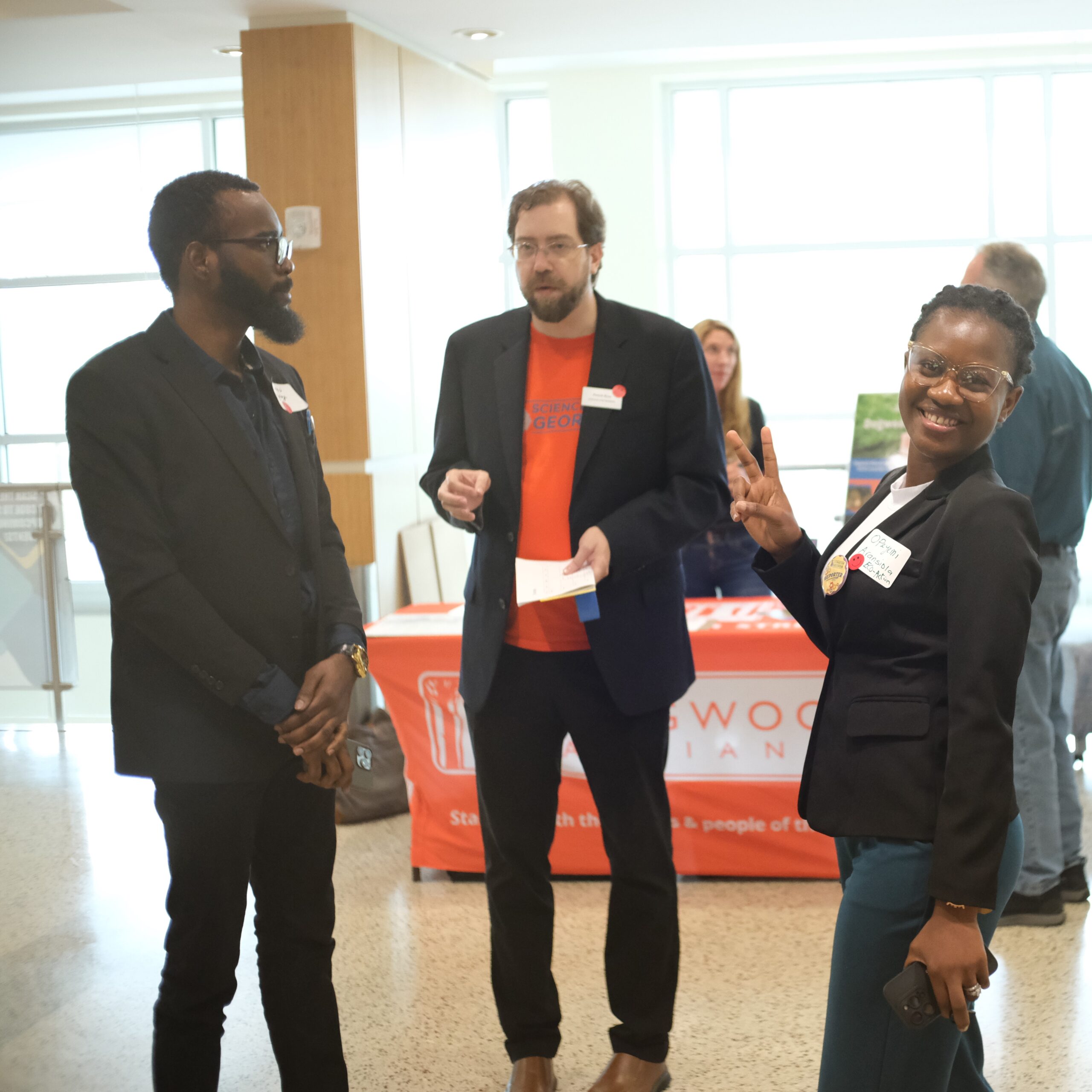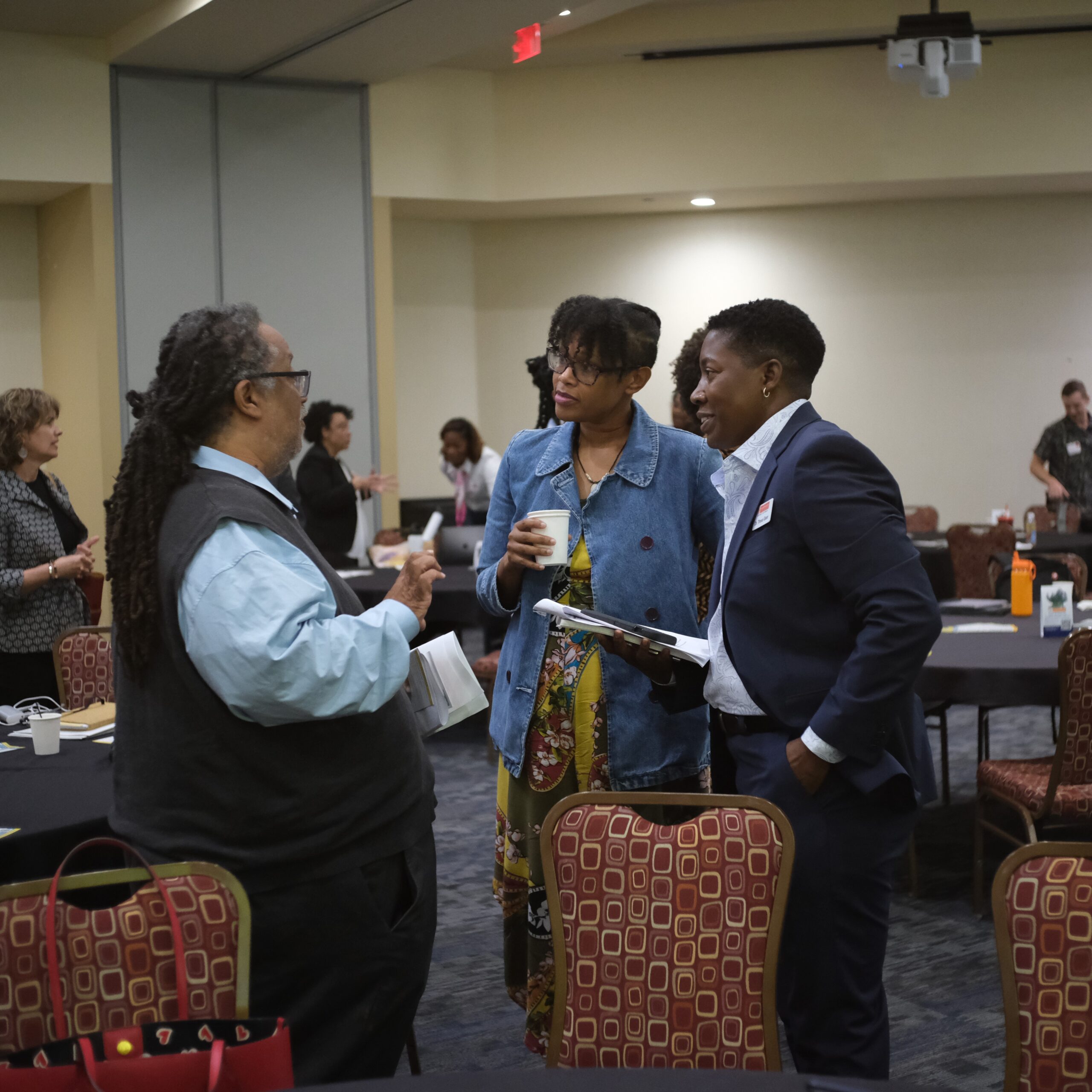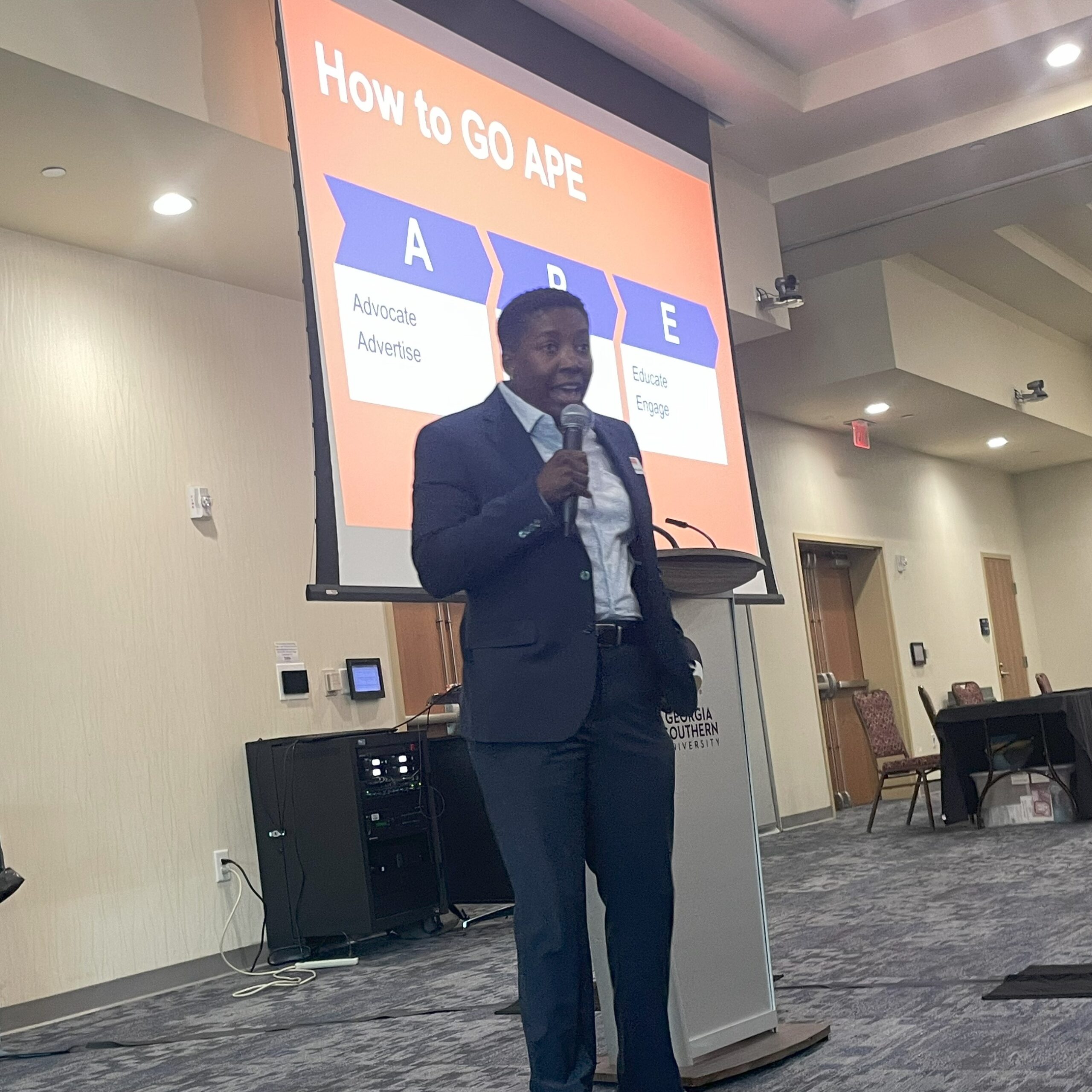2024 is half over! And we really packed a lot into the 1st six months of 2024.
As we jump into the second half of the year and mourn the ability to watch live TV without 1000+++ political ads (baseball is already unfun, I cannot imagine football season), lets conjure up some good images in our head.
June 13 & 14 we held our third annual Environmental Justice & Climate Protection Conference in Savannah. And it was amazing, inspirational, and standing room only!
We would like to that our many speakers, esp. our keynote speaker, Dr. Mildred McClain from Harambee House,for their inspirational words, and more importantly their calls to action. Midnight Riot won the “unposter session” with their creative depiction of what environmental justice means to them.
Conference Summary
A few themes emerged over the two days:
- Do not just say the sky is falling – provide people with action items to respond.
- Stop playing whack-a-mole and think cohesively for state-wide strategy.
- Plan programs with the future in mind, not the current situation.
- Get uncomfortable and go to the people we need to engage, even if we disagree with them.
- Democratize data access.
- Take care of yourself and build a community because real change takes a long time.
As a family – we can win!
Community chosen action items to support are:
- Focus on getting community members on the committees that produce “Calls for Proposals” to make “community funding” attainable by community members.
- More stringent air quality standards supported by more robust air testing and enforcement.
- Increased training to support community advocacy and interaction with policy makers.
Over the next month or so we will be releasing a report on lessons learned and over the next year we will be following up on our action items.

